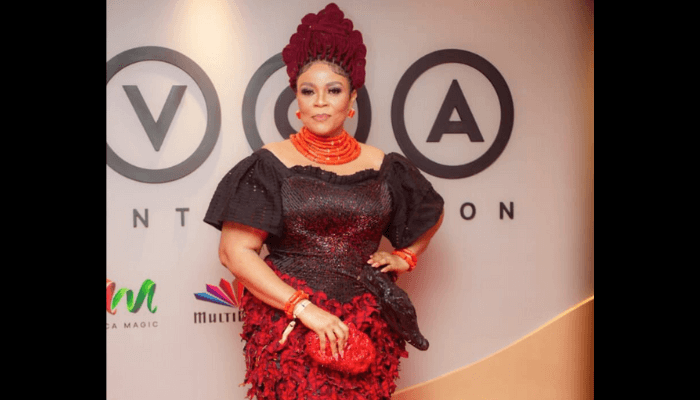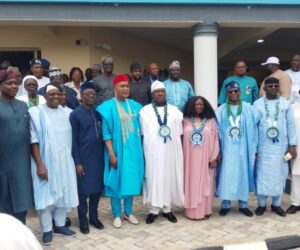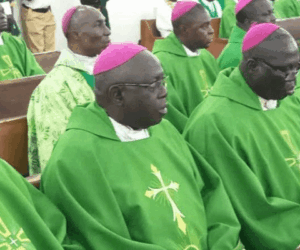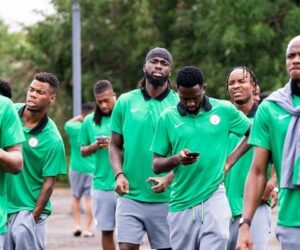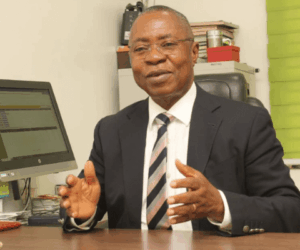Ijeoma Richards, producer of Uru Igba-boi.
In a significant event for cultural diplomacy, the documentary film “Uru Igba Boi” (The Value of Apprenticeship) took centre stage at the Nigerian Institute of International Affairs (NIIA) in Lagos on 19 September. The screening was part of a high-level symposium on Nigeria-China cooperation, organised by the NIIA and the Chinese Consulate, which focused on fostering economic and cultural ties through film. The presence of senior officials from the Chinese Embassy and key stakeholders from the Igba Boi ecosystem highlighted the documentary’s importance as a means for international dialogue.
A Triumphant Project and Its Visionary Creator
This show was a crowning achievement for the film’s producer, Ijeoma T.M. Richards, a seasoned Nollywood figure with numerous acting credits.
For Richards, the project marked a fulfilling return to her first love: documentary filmmaking. She has long aspired to leverage her intellect and talent beyond acting, aiming to tell meaningful stories that illuminate Nigerian culture.
Uru Igba Boi is the realisation of that dream. The one-hour, twenty-two-minute film explores the highly successful Igbo apprenticeship system from Eastern Nigeria, examining its processes and significant influence.
The documentary has received notable recognition, being selected for various international film festivals and earning numerous esteemed awards.
• Finalist for best documentary at Toronto International Nollywood Film Festival TINFF, 2025)
• Honourable Mention at Hollywood Independent Filmmaker Awards and Festival (2024)
• Official selection at the Alpine Frames Film Festival, Switzerland (2025)
• Best actress in a supporting role, Nigerian Women Achievers Awards 2025
• Official Selection at the I-Represent International Documentary and Bayelsa International Film Festivals (2025)

Capturing a Cornerstone of Entrepreneurship
The documentary examines the Igba Boi system by visiting markets across Nigeria and hearing directly from its beneficiaries. It explores how the system has been fundamental to the Igbo people’s recognition as celebrated businesspeople worldwide.
Ms Richards told BusinessDay, ‘Although I am an award-winning actor and filmmaker who has primarily worked on feature films, documentaries are my true passion. Uru Igba-boi is my first feature documentary project, and it is the first of many more I plan to produce.
She added, “What an eye-opening journey this has been for me. My curiosity and desire to unravel and understand how things work is what draws me to documentaries. For a while, I have been fixated on deciding which story to tell, until one day, while I was with my eldest sister, I realised I wanted to know and understand how these quietly successful and focused Igbo businesspeople became who they are and what makes them so confident in their quiet, unassuming ways. I found that the common denominator was the training they all received, which is Igba-boi. The project started in 2023, so it is not new. It is only just beginning to gain traction and attention.
When the idea first came to me and I was satisfied with my initial questions, I shared my thoughts with my eldest sister, Chinwe Ifechigha, who I was with at the time. She said, ‘You should start the project immediately and not waste time, before it grows cold in your mind.’ Then she handed me a book she has on the subject of Igba-boi.”
At the NIIA symposium, the film sparked an expert debate on the system’s role as a driver of entrepreneurship and economic development. Chief Ngozi Emechebe, President of ASPAMDA and a prominent figure in the film, powerfully described Igba Boi as “God’s divine intervention for the Igbo race.”
He shared his personal journey, which began at the age of ten, following the Civil War. “I saw my dad bury his money because of the ‘only 20 pounds’ policy,” he recalled.
“I didn’t want to do boi-boi. I thought I was coming to Lagos for other things. I passed the Common Entrance Examination, and my name appeared on the list published in The Renaissance newspaper.”
Initially reluctant, Emechebe now passionately advocates for the system, noting, “You are subject to learning. It builds a culture of hard work… Your master opens his secrets to you. You learn practically. There is also mentorship.”

A System Formalised: Timely Legislative Context
The documentary’s release is especially timely. On 10 September 2025, the Anambra State Igbo Apprenticeship Law came into force, officially recognising and regulating this traditional practice for the first time. The new law establishes a legal framework, including written agreements, a maximum seven-year training period, and a dedicated commission for oversight—modern protections designed to preserve the cultural practice while preventing exploitation.
Barrister Leo Chiegboka, Anambra State Liaison Officer, commended the documentary and described it as timely, considering the recently passed law on Igba-boi. He shared copies of the Anambra Igbo Apprenticeship Law and delivered a speech at the event.
The Filmmaker: Ijeoma Richards
Ijeoma Richards is a Nigerian actress, film producer, and President of the Nollywood Creative Minds Forum (NCMF). An MBA holder from the University of Lagos, her notable acting works include Malaysian Wives (nominated for the 2018 AMVCA) and Unforgivable (2023).
A firm advocate of professionalism, she advises aspiring actors to concentrate on refining their craft—excellent diction and delivery—rather than depending on a “pretty face.” Describing herself as an introvert who enjoys books and quiet company, Richards also co-owns a property business in Lekki. She remains committed to her passion for documentary filmmaking, reinforcing her reputation as a thoughtful and versatile creative force.
Challenges included an accident caused by a careless driver that resulted in a two-month layoff, as well as respondents who initially agreed to interviews but declined at the last minute.
It has been positive overall.
“The documentary, although there is still more ground to cover, has received impressive acceptance, particularly from the Igbo community. Yes, there has been positive feedback, with people requesting that more aspects of the system be documented. Members involved in the Igba-boi system are very interested in the project and have requested additional screenings. Some business owners from the Igba-boi system attended the recent screening at the Nigeria-China Cooperation Symposium on September 18, 2025, at the Nigerian Institute of International Affairs (NIIA).”
Ijeoma Richards is optimistic. “Working on this project has shown me how much we are empowered to tell our own story. We are more focused on the fleeting and losing the privilege of curating the wealth entrusted to us as a people. As for soft power, we need to learn more than a thing or two
from Hollywood. It’s the loudest example of soft power I can give. That industry told the world what to think, and it succeeded tremendously.
“I’ll say go for it! Tell your own story, your own way, in whatever language you speak. The world has a place for you. And if you don’t, someone with
a camera will come, tell it their way, and you most likely won’t like it.”
You can expect to watch Uru Igba Boi at your convenience soon. Ijeoma Richards states, “The next step is distribution, which is already in process.”

